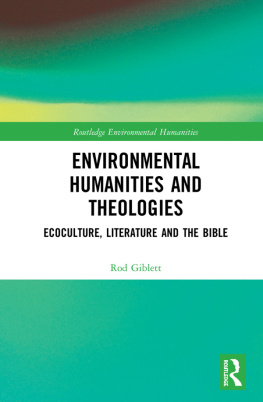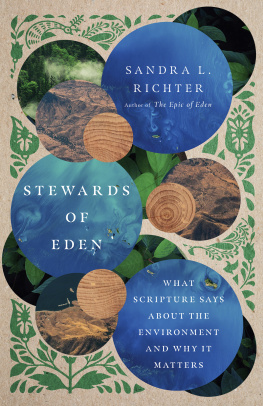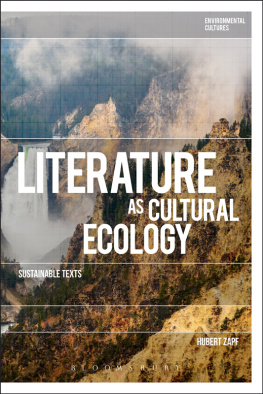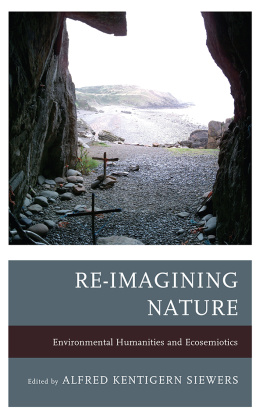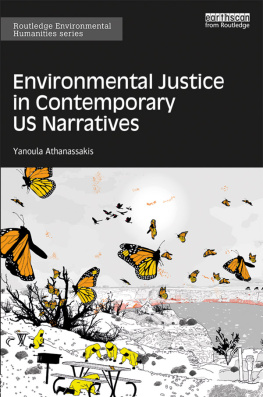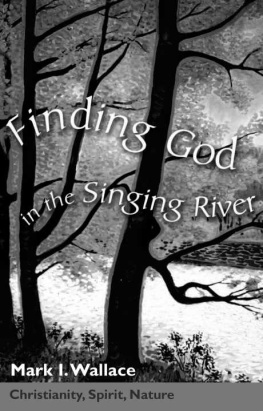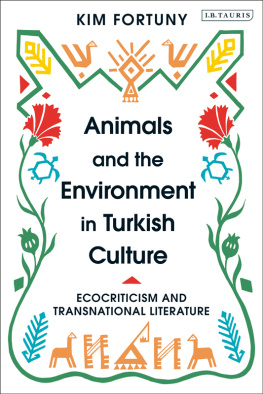
p.i
Environmental Humanities and Theologies
Many ways of thinking about and living with the environment have their roots in the Bible and the Christian cultural tradition. Environmental Humanities and Theologies shows that some of these ways are problematic. It also provides alternative ways that value both materiality and spirituality.
Beginning with an environmentally friendly reading of the biblical story of creation, Environmental Humanities and Theologies goes on to discuss in succeeding chapters the environmental theology of wetlands, dragons and watery monsters (including crocodiles and alligators) in the Bible and literature. It then gives a critical reading of the environmental theology of the biblical book of Psalms . Theological concepts are found in the works of English writers of detective and devotional stories and novels, American nature writers and European Jewish writers (as succeeding chapters show). Environmental Humanities and Theologies concludes with an appreciation of Australian Aboriginal spirituality in the swamp serpent. It argues for the sacrality of marsh monsters and swamp serpents as figures of reverence and respect for living bio- and psycho-symbiotic livelihoods in bioregions of the living earth in the Symbiocene. This is the hoped-for age superseding the Anthropocene.
Environmental Humanities and Theologies is aimed at those who have little or no knowledge of how theology underlies much thinking and writing about the environment and who are looking for ways of thinking about, being and living with the earth that respect and value both spirituality and materiality. It is a new text nurturing sacrality for the Symbiocene.
Rod Giblett is Honorary Associate Professor of Environmental Humanities in the School of Communication and Creative Arts, Deakin University, Australia. He is the author of many books in the environmental humanities, including People and Places of Nature and Culture (2011) and most recently, Cities and Wetlands: The Return of the Repressed in Nature and Culture (2016).
p.ii
Routledge Environmental Humanities
Series editors: Iain McCalman and Libby Robin
Editorial Board
Christina Alt , St Andrews University, UK
Alison Bashford , University of Cambridge, UK
Peter Coates , University of Bristol, UK
Thom van Dooren , University of New South Wales, Australia
Georgina Endfield , University of Nottingham, UK
Jodi Frawley , University of Sydney, Australia
Andrea Gaynor , The University of Western Australia, Australia
Tom Lynch , University of Nebraska, Lincoln, USA
Jennifer Newell , American Museum of Natural History, New York, US
Simon Pooley , Imperial College London, UK
Sandra Swart , Stellenbosch University, South Africa
Ann Waltner , University of Minnesota, US
Paul Warde , University of East Anglia, UK
Jessica Weir , University of Western Sydney, Australia
International Advisory Board
William Beinart , University of Oxford, UK
Sarah Buie , Clark University, USA
Jane Carruthers , University of South Africa, Pretoria, South Africa
Dipesh Chakrabarty , University of Chicago, USA
Paul Holm , Trinity College, Dublin, Republic of Ireland
Shen Hou , Renmin University of China, Beijing, China
Rob Nixon , Princeton University, Princeton NJ, USA
Pauline Phemister , Institute of Advanced Studies in the Humanities, University of Edinburgh, UK
Deborah Bird Rose , University of New South Wales, Sydney, Australia
Sverker Sorlin , KTH Environmental Humanities Laboratory, Royal Institute of Technology, Stockholm, Sweden
Helmuth Trischler , Deutsches Museum, Munich and Co-Director, Rachel Carson Centre, Ludwig-Maxilimilians-Universitt, Germany
Mary Evelyn Tucker , Yale University, USA
Kirsten Wehner, National Museum of Australia, Canberra, Australia
The Routledge Environmental Humanities series is an original and inspiring venture recognising that todays world agricultural and water crises, ocean pollution and resource depletion, global warming from greenhouse gases, urban sprawl, overpopulation, food insecurity and environmental justice are all crises of culture .
The reality of understanding and finding adaptive solutions to our present and future environmental challenges has shifted the epicentre of environmental studies away from an exclusively scientific and technological framework to one that depends on the human-focused disciplines and ideas of the humanities and allied social sciences.
We thus welcome book proposals from all humanities and social sciences disciplines for an inclusive and interdisciplinary series. We favour manuscripts aimed at an international readership and written in a lively and accessible style. The readership comprises scholars and students from the humanities and social sciences and thoughtful readers concerned about the human dimensions of environmental change.
p.iii
Environmental Humanities
and Theologies
Ecoculture, Literature and the Bible
Rod Giblett

p.iv
First published 2018
by Routledge
2 Park Square, Milton Park, Abingdon, Oxon OX14 4RN
and by Routledge
711 Third Avenue, New York, NY 10017
Routledge is an imprint of the Taylor & Francis Group, an informa business
2018 Rod Giblett
The right of Rod Giblett to be identified as author of this work has been asserted by him in accordance with sections 77 and 78 of the Copyright, Designs and Patents Act 1988.
All rights reserved. No part of this book may be reprinted or reproduced or utilised in any form or by any electronic, mechanical, or other means, now known or hereafter invented, including photocopying and recording, or in any information storage or retrieval system, without permission in writing from the publishers.
Trademark notice : Product or corporate names may be trademarks or registered trademarks, and are used only for identification and explanation without intent to infringe.
British Library Cataloguing-in-Publication Data
A catalogue record for this book is available from the British Library
Library of Congress Cataloging-in-Publication Data
Names: Giblett, Rodney James, author.
Title: Environmental humanities and theologies : ecoculture, literature and the Bible / Rod Giblett.
Description: Abingdon, Oxon ; New York, NY : Routledge, 2018. | Series: Routledge environmental humanities | Includes bibliographical references and index.
Identifiers: LCCN 2017060130 (print) | LCCN 2018013642 (ebook) | ISBN 9781351124102 (eBook) | ISBN 9780815357643 (hardback)
Subjects: LCSH: Ecotheology. | Human ecologyReligious aspectsChristianity. | Nature in the Bible.
Classification: LCC BT695.5 (ebook) | LCC BT695.5 .G53 2018 (print) | DDC 261.8/8dc23
LC record available at https://lccn.loc.gov/2017060130
ISBN: 978-0-8153-5764-3 (hbk)
ISBN: 978-1-351-12410-2 (ebk)
Typeset in Times New Roman
by Swales & Willis Ltd, Exeter, Devon, UK
p.v
Dedicated to Noel
p.viii
The dedication of this book to Noel is both to Dr Noel Vose in memoriam and to my brother named after Dr Vose, both of whom have shaped my life in different ways at different times in relation to theology and spirituality. They bear no responsibility for what follows.
I am grateful to the Dalton McCaughey Theological Library in the University of Divinity, Melbourne for granting me access to some books by Habel and Westermann about Genesis cited in .
For , I am grateful to John Ryan for re-igniting my interest in Tolkiens and Beowulf s take on wetlands. I first discussed Beowulf in Postmodern Wetlands. In an early draft of that book I also discussed the Dead Marshes in Tolkiens The Lord of the Rings , but this was later cut for reasons of length and lost. Placing the Dead Marshes in close context with Beowulf and my work on the World War I has enabled me to produce a richer reading of Tolkiens work. I am also grateful to John for passing on the reference to The Silmarillion and to two anonymous reviewers of Green Letters where this chapter was first published for their helpful comments, criticisms and suggestions that enabled me to broaden my range of references and sharpen the argument. I am grateful to Sandra Giblett for drawing my attention to Diana Gabaldons An Echo in the Bone and her account of The Great Dismal Swamp.
Next page
